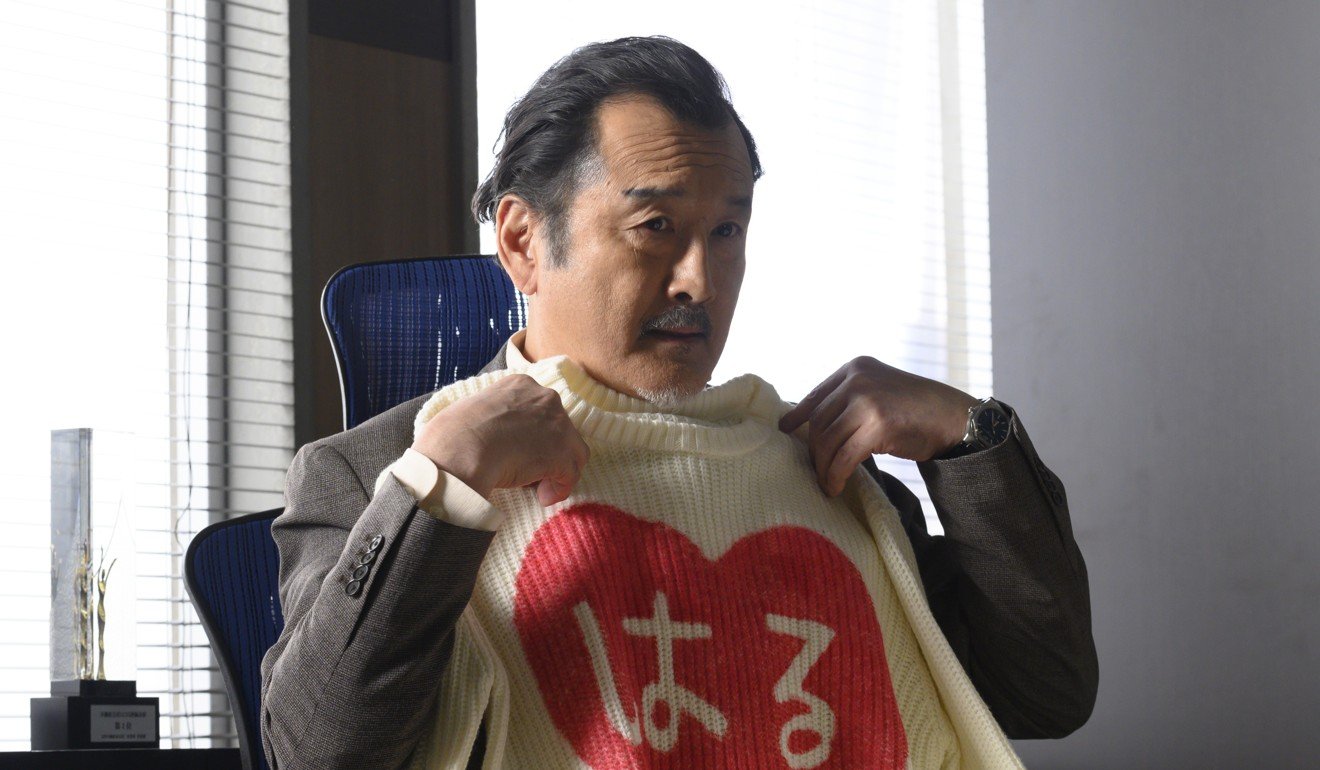
3/5 stars
Last summer, Japanese drama series Ossan’s Love proved a surprise hit, not just in Japan but also in Hong Kong, where it’s screened on ViuTV. Its overwhelmingly positive portrayal of male homosexuality is all too rare, and normally reserved for the pages of yaoi, or “boys love”, manga and anime series.
This big-screen spin-off, which hopes to capitalise on the show’s success, continues the escapades and homosexual awakening of thirty-something estate agent Haruta (Kei Tanaka). Not only does his burgeoning relationship with colleague Maki (Shuko Ito) hit the skids, but a freak accident sees Haruta’s boss, Kurosawa (Kotaro Yoshida), fall in love with our confused hero all over again.
The action picks up with Haruta returning from a year working abroad in Shanghai and Hong Kong. A misunderstanding sees Maki get cold feet about their relationship, and transfer to the company’s head office, just as they swoop in to take control of a huge redevelopment project.
Maki’s new boss, Mamiana (Ikki Sawamura), seems a little too hands-on with his new teammate for Haruta’s liking, but fresh-faced replacement “Justice” Yamada (Jun Shison) might be just the distraction Haruta needs.
Audiences who are unfamiliar with the TV show may find Ossan’s Love: Love or Dead pretty rough going, at least to begin with. Little effort is made to bring newcomers up to speed with the roller coaster of courtships and propositions that Haruta has endured since joining the firm. Suffice to say that the reason he had always been so unlucky in love until now might be because he was always looking the wrong way.

The laughs come thick and fast and, while respectful, the humour is undeniably broad. A sizeable percentage of the film’s runtime consists of slow-motion montages of Kei Tanaka’s contorted face, as he screams and gawks in exasperation or confusion. Haruta remains ill at ease in this new environment, where seemingly every man in his vicinity is gay and available, but his response is one of cautious curiosity rather than fear or revulsion.
One minor gripe is that, in its efforts to unravel this tangled mess of doe-eyed salary men, the female characters are sidelined. Shuko Ito’s office know-all in particular, who proved so integral to the fabric of the series, barely gets a look-in here. But for audiences already bewitched by the hapless follies of these office uncles, this big-screen bonus is a hoot.
Want more articles like this? Follow SCMP Film on Facebook







